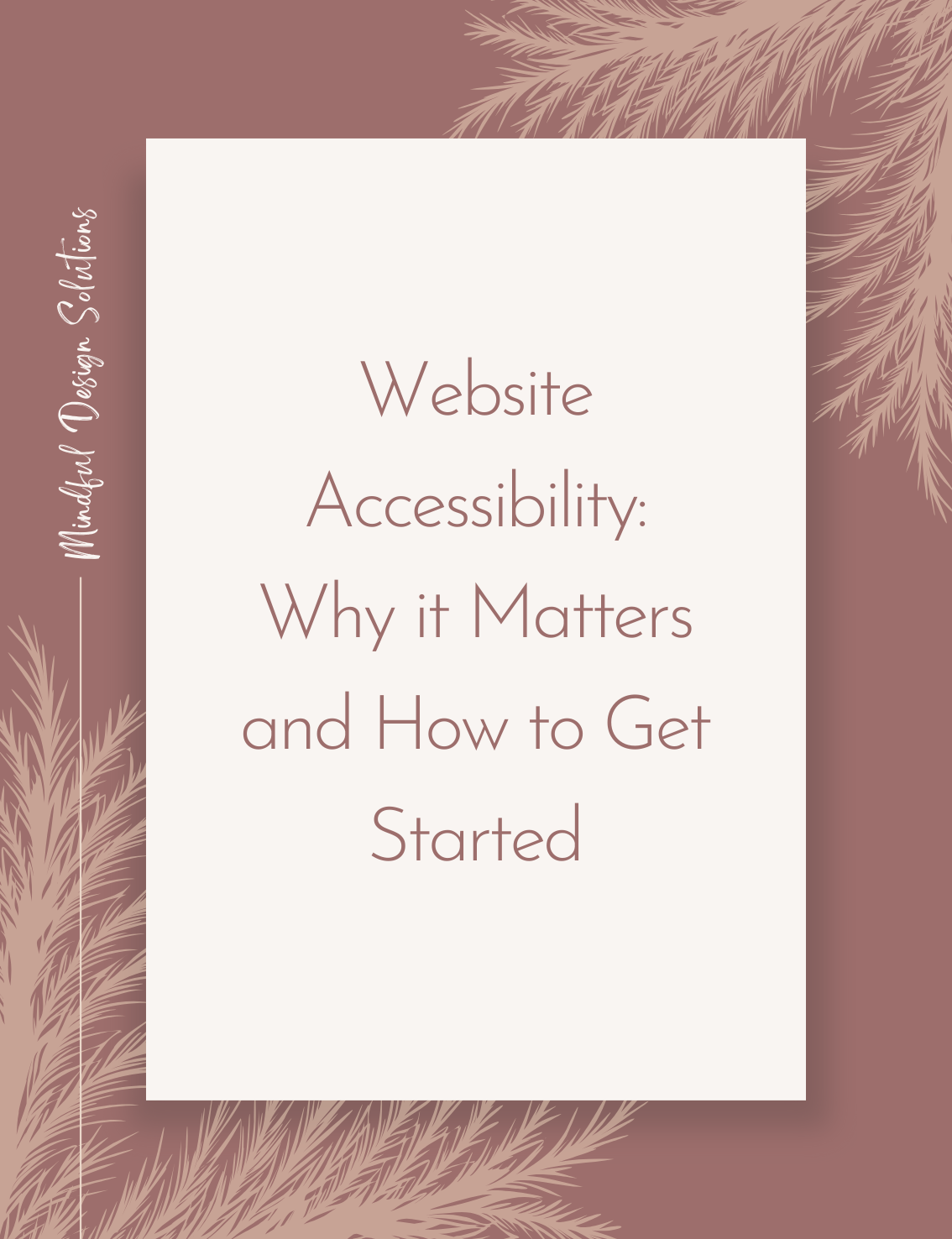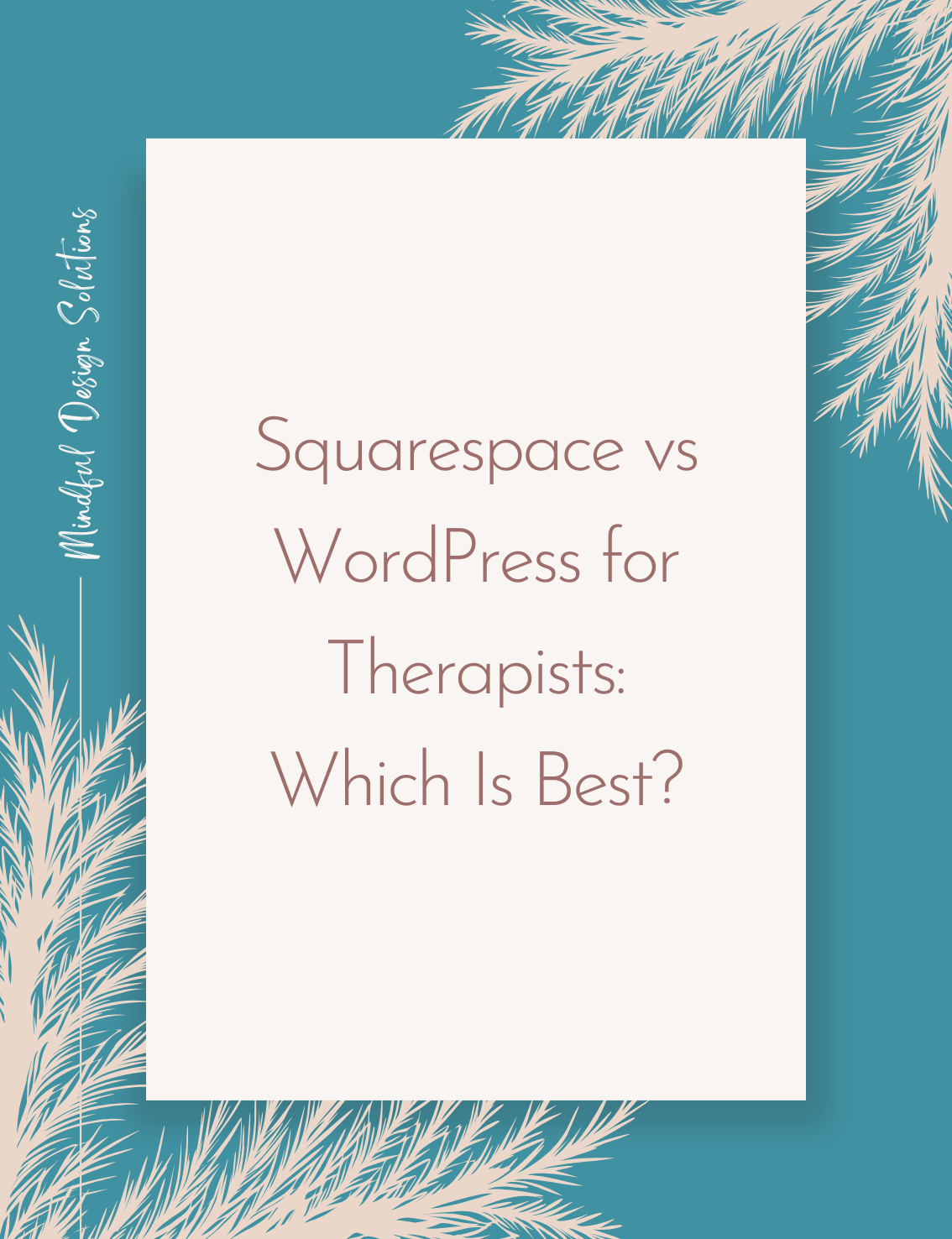SEO for Therapists: Get Found Without Paid Ads
Why SEO Matters for Private Practice Growth
You pour your heart into your therapy practice, but if your website isn’t visible in search results, potential clients may never find you. SEO is about making sure your therapy website shows up when people search for the services you offer – without relying on expensive ads.
Imagine a steady stream of clients finding you through Google simply because your website is optimized to appear where they’re looking. That’s the power of SEO.
Understand Local SEO for Therapists & Google Business Profile Basics
Since most therapists either work with clients in-person or within specific states, local SEO is essential. Google needs to know where you’re located and who you serve in order for your site to appear in local searches for things like “anxiety therapist near me” or “trauma therapist philadelphia”.
Claim and optimize your Google Business Profile (GBP).
Add your business name and phone number exactly as they appear on your website.
Use your business address if you see clients in person and embed your Google Business Map on your website.
Choose a primary category and add secondary categories (e.g. Therapist, Mental Health Service, etc.).
Include your website link and any social media links.
Use real photos (e.g. your office, team, etc.) to build trust.
Add your services and schedule weekly update posts.
Keep your information consistent.
Ensure your NAP (practice Name, Address, and Phone number) are consistent everywhere online – your website, GBP, Psychology Today, and any directories you may be listed in.
Optimizing Your Website Pages with Keywords + Locations
To improve SEO for therapy websites:
1) Choose location-based keywords such as “therapist in center city, philadelphia” or “emdr therapy glenside.”
2) Use keywords naturally in:
Page titles and meta descriptions
Headings (H1 and H2)
First paragraph of your web page
Image alt text
URLs (e.g. www.yoursite.com/anxiety-therapy-philadelphia)
3) Create clear, inviting service pages. Instead of listing every modality, write pages that speak directly to what clients are searching for:
Trauma Therapy for Adults in [City]
Couples Therapy in [City]
Depression Therapy for Teens in [City]
This shows both Google and your potential clients exactly what you offer.
The Power of Blogging for Organic Visibility
Blog posts expand your website’s reach by answering questions people search for every day. For example:
“How does EMDR therapy work?”
“Ways to reduce anxiety at bedtime.”
“What to expect in your first therapy session.”
Each blog post is another chance to appear in Google search results, build trust, and help someone before they even become a client. Over time, this builds your credibility as an expert in your niche.
Getting Reviews & Building Local Backlinks
Ask colleagues for Google reviews. Positive reviews improve your local SEO ranking and build trust with potential clients. However, it’s important to note that there are ethical guidelines from licensing boards, professional organizations, and some states, regarding client reviews. Therefore, I recommend asking colleagues (not clients) for professional reviews.
Build local backlinks. These are links to your website from other reputable local websites, such as:
Local mental health directories
Professional associations
Community organizations you collaborate with
Each quality backlink tells Google your website is trusted and relevant in your community.
Tracking Results with Simple Tools
You don’t need complex software to track your SEO progress. Start with:
Squarespace Analytics to see site traffic, popular pages, search keywords, and visitor geography directly within your website dashboard
Google Analytics to get deeper insights into how visitors interact with your site and which pages they visit
Google Search Console to find what keywords people use to find your site and fix any technical SEO issues
Tracking your website analytics regularly helps you to see what’s working and where to adjust your strategy to reach more local clients.
SEO can feel overwhelming, but it doesn’t have to be. With clear strategies and a website built to support your goals, you can reach the people who need you most.
If you’re ready for a website that reflects your expertise and helps local clients find you with ease, I’m here to help.
Contact me today to create a website that feels aligned with your purpose and supports your clients.
Related Posts







